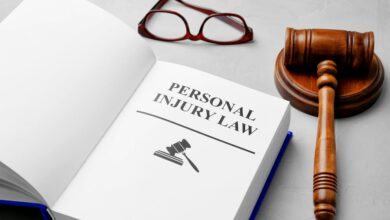The Catalytic Influence of Perpetual Growth: Demonstrating the Power of Continuous Learning in Advancing Legal Expertise
Continuous learning equips law professionals with the tools necessary to adapt to regulatory changes and emerging fields, ultimately allowing them to offer improved legal services.

In today’s fast-paced legal environment, the importance of continuous learning cannot be overstated. Legal professionals must remain current on changing legislation and technical developments to keep a competitive edge and offer the greatest service to their clients. Whether attending sessions from a live CLE speaker or engaging with online platforms, lifelong learning is critical in the legal profession.
Continuous legal education is essential not only for compliance with regulations but also for personal and professional growth. Transformative legislation and legal practice change demand that lawyers actively engage in educational opportunities to uphold their capabilities. Embracing a culture of learning can help lawyers stay relevant, competent, and better equipped to tackle any legal challenge that comes their way.
Introduction to Continuous Legal Education
The legal field is rapidly changing, driven by new laws, policy reforms, and innovative technologies. For legal professionals, keeping up with these changes is advantageous and essential. Continuous legal education ensures that lawyers remain proficient, enabling them to navigate complex cases and provide stellar services to their clients and the broader community. The dynamic nature of the law means that what was relevant last year might not hold today, pushing the need for ongoing learning to the forefront.
Why Continuous Learning is Crucial for Lawyers
Continuous learning is a vital element in the toolkit of any competent lawyer. It provides an avenue to stay informed about new legislation, evolving legal precedents, and technological tools reshaping how legal services are delivered. Ongoing education is integral for compliance with ethical standards and maintaining the finesse necessary to navigate complex legal landscapes expertly. Adopting lifelong learning enables lawyers to harness fresh strategies, enhance their knowledge base, and maintain the ethical standards demanded by the profession.
Methods of Continuous Learning for Legal Professionals
The opportunities for legal professionals to continuously learn are vast and varied. Traditional methods like attending in-person seminars and workshops remain popular, providing interactive environments for learning. Meanwhile, the rise of digital education platforms offers flexible learning through webinars and online courses. Peer-reviewed journals, legal forums, and discussion groups also present avenues for continual professional development. Such diversity in learning methods affords legal professionals the flexibility to tailor their educational pursuits to fit their schedules and interests.
The Role of Technology in Legal Education
Technology has revolutionized legal education, offering legal professionals new modalities to enhance their skills and knowledge. Online platforms now provide many courses and seminars that can be attended virtually anywhere, removing geographical barriers and making education more accessible. The digitization of resources and virtual networking opportunities has allowed lawyers to expand their knowledge base and adapt more swiftly to the ever-evolving legal environment.
Practical Benefits of Continuous Education in Law
The practical benefits of continuous education within the legal sector are substantial and multifaceted. Legal professionals who actively engage in lifelong learning typically enjoy heightened expertise and knowledge, translating into more robust client relationships and increased career satisfaction. Continuous learning equips law professionals with the tools necessary to adapt to regulatory changes and emerging fields, ultimately allowing them to offer improved legal services. As a result, lawyers can be more innovative in crafting case strategies, negotiating settlements, and advocating for their clients, enhancing both their reputation and the outcomes for those they serve.









